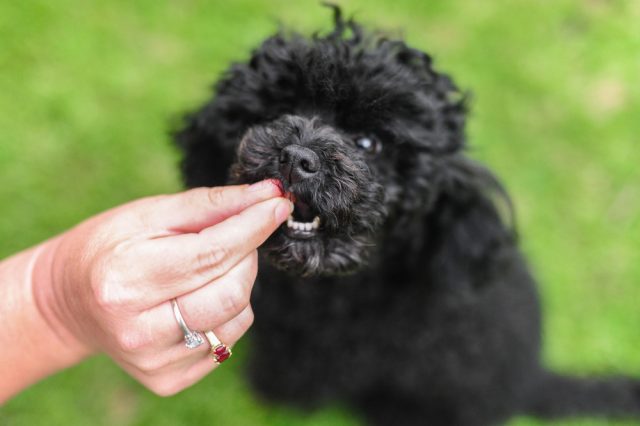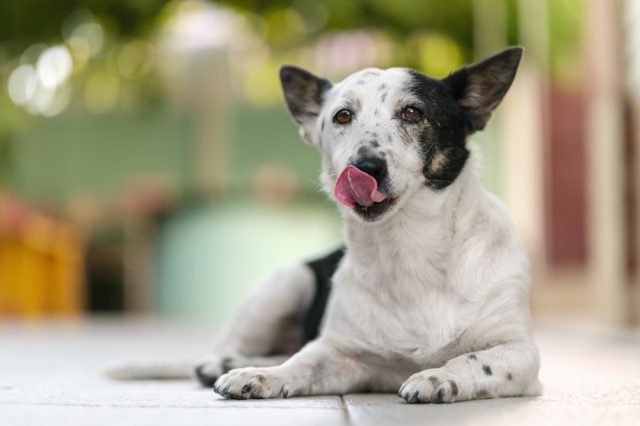When it comes to choosing the right dog treats, you might find yourself feeling lost looking down the aisle at your local pet supply store. Or maybe you’re browsing the web all day, looking for the perfect snack for your pup.
Wherever you find yourself, you’re probably being bombarded with information regarding one important factor: ingredients. What goes into your dog’s body has a huge impact on their health and well-being, so looking at ingredients is something you should take seriously.
While there are a lot of ingredients that are both delicious and healthy, there are others that should be avoided at all costs. No matter what kind of treats you buy and where you get them, make sure these three ingredients aren’t inside.
#1 – Corn, Wheat & Soy
We’ve lumped these together because they’re fairly interchangeable. These are all fillers, which means they add a lot of calories and fiber, making your dog feel full without any nutritional value. In fact, some of these ingredients are actually harmful to pets. Dogs are not designed to digest these grains and many are allergic to them. These ingredients also contribute to obesity and diabetes because they are high in carbohydrates. Fillers like these add substance to a food that typically lacks appropriate protein, fat and other nutrients.
#2 – Meat Meals & By-Products
These might sound healthy because they come from meat, but they are not exactly what you’d expect. Meat meals and by-products are essentially the leftovers of animals slaughtered for human consumption. When an animal is processed for humans, the lean muscle meat is butchered and created into human-grade food. What’s left is the bones, organs, blood, beaks, feet, etc. that go into pet foods. Expired meats from supermarkets, restaurant grease, and the bodies of dead, diseased, dying and disabled animals not fit for human consumption are also processed into pet foods. These are the meat meals and by-products you see listed in some ingredient labels. These are low-quality meat products that cannot be sold to people. If you wouldn’t eat it, why feed it to your dog?
#3 – Preservatives
Many people are trying to eat more natural foods that are free of preservatives and there’s good reason for it. Unfortunately, many of these harmful ingredients are also found in pet foods. The most common preservatives in dog food are BHA, BHT, Ethoxyquin and Propyl Gallate. BHA and BHT are banned for human consumption in many countries, but they are still allowed in the United States. These are known carcinogens in animal studies and are possibly linked to human cancers as well.
There are few studies on Propyl Gallate, so there’s no way to tell if it is safe. Ethoxyquin has been associated with the development of kidney and liver damage, cancer (liver, spleen, stomach, skin), immune deficiency syndrome, blindness, and leukemia. Whatever the reason for adding these ingredients, they should be avoided at all costs. There are plenty of healthy, natural preservatives that won’t cause your dog any harm.
The search for the perfect dog treats is a difficult one and you’re sure to find many different kinds that your dog loves. Just make sure that they’re healthy and free of these nasty ingredients.

Remember, if it’s something you wouldn’t feel safe eating, don’t feed it to your dog. Stick to human-grade ingredients from a company you trust, or “treat” your dog to some of the human foods that are safe for canine consumption. If you can get creative and make your own goodies, you and your dog will have enough treats to last a lifetime.
These statements have not been evaluated by the Food and Drug Administration. This product is not intended to diagnose, treat, cure, or prevent any disease. The information on this website is not intended to replace a one-on-one relationship with a qualified healthcare professional.


 Toledo, United States.
Toledo, United States.